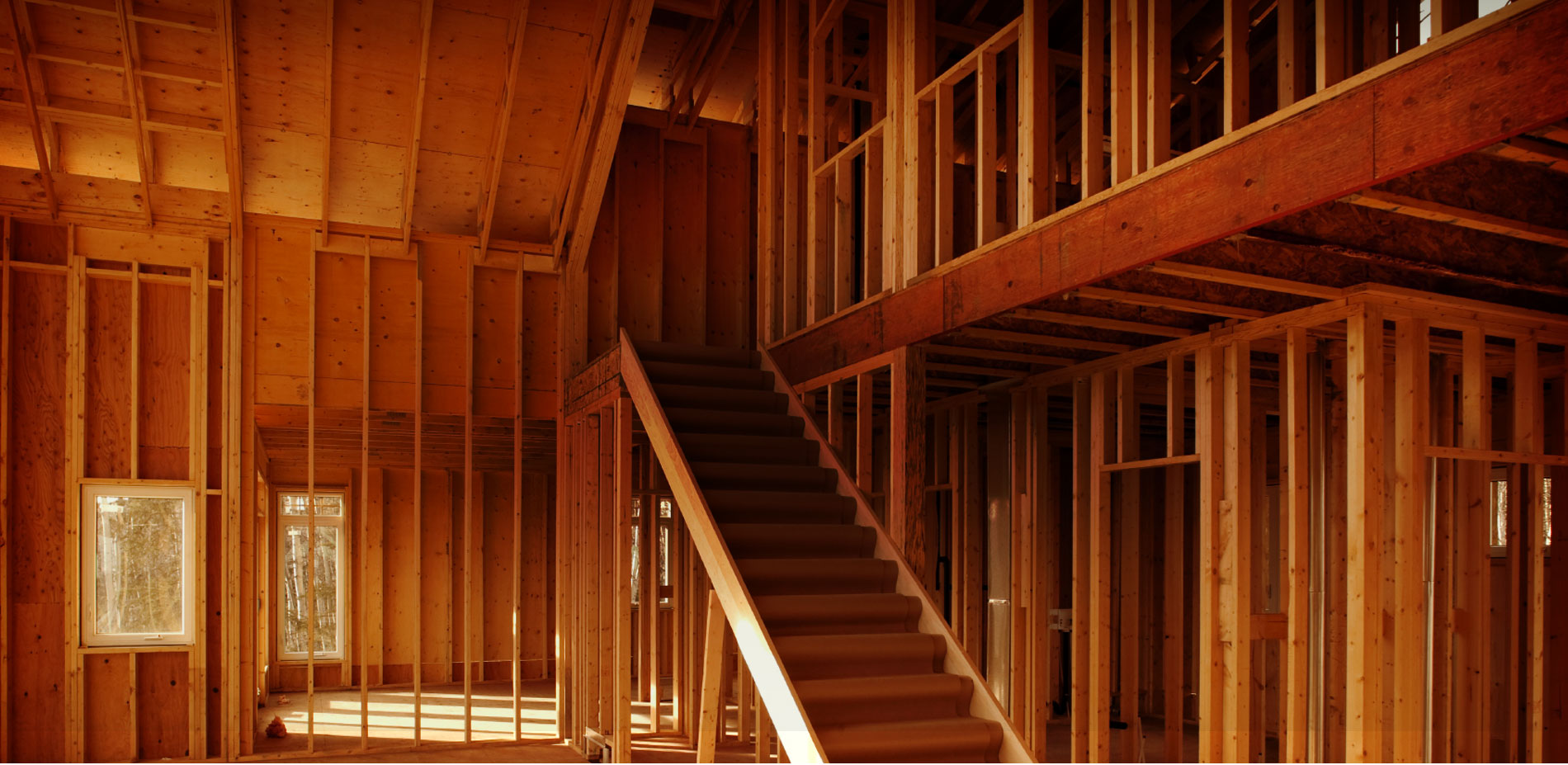Smart Home Building
Adapted from articles on builderonline.com and nahb.org

While AI can certainly be a valuable tool, human touch is still needed to not only develop these technologies but see each solution through to completion. Below, learn six ways AI can improve the new-home construction process for builders and their teams.
- Creating a Home’s Digital Copy
AI can help organize the build process through room segmentation and data association by ingesting messy build documentation (selections, change orders, etc.), then collecting and organizing everything to create the most accurate representation of the home. AI-enriched file management enables builders to work more efficiently and easily hand off each home’s information to homeowners in a highly organized and interactive digital copy. Users can drop files onto a space on a floor plan enabling spatially associated selections for each room. Additionally, users can store files, that will then be associated with the correct room (e.g., bathroom #1) on the floor plan. - Streamlining Bidding and Sourcing
Procurement software can help builders gather bids, find materials and niche suppliers—including sustainable, minority-owned, woman-owned, and veteran-owned businesses—order materials on a predictive schedule, and make change orders with a click of a button. - Supporting Customers and Sales
In terms of customer service and sales, AI can help new-home sales teams answer questions through chatbots at all hours of the day. Chatbots (also refered to as digital assistants) can meet buyers wherever they are in their journey—without the pressure of live chat solutions. Home buyers are two to three times more likely to engage with a chatbot versus live chat because of the ability to immediately get answers to their questions. Builders can implement a chatbot to operate autonomously, guiding a buyer until they have indicated that they are interested, at which point a live representative could take over the process. - Keeping Jobsites Safe
AI also plays a significant role in enhancing on-site safety. Construction sites can be monitored in real-time, identifying safety hazards such as workers not wearing protective gear or machinery operating outside safe parameters. AI systems can then alert site managers immediately, helping to prevent accidents and improve overall safety compliance. AI object detection can also recognize specific vehicle types and license plates, handle access control, and verify deliveries for management. AI proximity advisories are also sent when workers are close to energized equipment keeping workers aware of their surroundings and allowing in-person safety site visits the option of remote inspection. - Simplifying Interior Design Choices
To envision how an area will look, AI systems such as Planner 5D can simplify interior design projects by allowing builders or architects to brainstorm ideas without investing excessive time or effort. By uploading a picture of an area, users receive multiple options for a potential space, and it can serve as a collaboration tool between builders, designers, and clients. Once an image is uploaded, users are asked to specify the type of space: a kitchen, bedroom, bathroom, office, living room, or children’s room. Builders or designers can experiment with various formats and see how the space could potentially appear if its functionality were changed. The end results might even inspire users to reconsider the room’s layout unexpectedly. - Automating Smart Home Tech
As builders continue adding and prioritizing smart-home solutions in their new-build packages, there’s an increased focus on smart-home technology automation and how AI can help. Some industry professionals foresee “smart power” becoming a bigger part of what drives the smart-home market. It is believed that AI will significantly influence the next wave of smart-home technology. Where current products require manual programming in order to be automated, AI and machine learning have the potential to enable solutions that provide true home automation. This has the potential to be an exciting development in the industry that can adapt and offer efficiencies based on a customer’s habits, usage, and preferences.
The continued development of AI technologies presents an opportunity for the construction sector to fundamentally reimagine its processes and operations. As more companies recognize the value of these tools, the industry will likely see a shift toward more data-driven, efficient, and innovative ways of working, ultimately benefiting both businesses and their clients.



